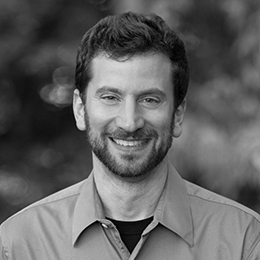The Easter Masquerade
In 1582 Pope Gregory XIII established our modern calendar and fixed the rules determining the date of Easter. This year Easter falls on March 23, but from year to year it can shift by as much as a month on the Gregorian calendar.
Finding Easter’s date for a given year requires a surprising degree of scientific acumen. The last things one might expect to see in, say, the Book of Common Prayer are tables of numbers and rules for mathematical calculations — but there they are, nevertheless.
At first glance, this seems to exemplify a kind of harmony between religion and science, a peaceful concord between faith and reason. Indeed, a variety of public figures — from prominent scientists to the Pope — have promoted the view that science and religion are not adversaries but complementary and mutually supporting fields. “Truth cannot contradict truth,” they declare, implying that the truths discovered by reasoning from sensory evidence cannot clash with the “truths” of religious dogma.
A closer look, however, reveals the long history of the hostility of faith towards reason — which continues to this day. Violent clashes between the two are not only possible but unavoidable, and the notion that religion can coexist on friendly terms with science and reason is false.
For reasons both biblical and astronomical, Easter is defined as the first Sunday after the first full moon on or after the vernal equinox (the first day of spring). To get his calendar rules right, Pope Gregory had to rely on some of the best astronomers and mathematicians of his day. Ironically, one of these was Nicolas Copernicus, whose sun-centered astronomy engendered one of history’s most famous clashes between science and religion.
A faithful canon of the Catholic Church, Copernicus supported the calendar project happily. His scientific work was partly motivated by the goal of predicting more accurately the first day of spring and the subsequent full moon. He modestly expressed the hope that by facilitating the calculation of Easter his labors would “contribute somewhat even to the Commonwealth of the Church.”
At first Copernicus’s work was warmly accepted by Church officials — but only because they didn’t take it seriously. Sixteenth-century common sense held that the Sun orbits the Earth, which is motionless at the center of the universe. More important, Church scholars held that the true structure of the world is established not by science but by official interpretation of Scripture. Hence, they regarded the motion of the Earth as nothing more than a convenient mathematical assumption — an idea justified solely by its utility in making astronomical predictions. Thinking they could evade a clash between reason and revelation, they denied the reality of the Earth’s motion but used the Copernican theory nonetheless.
This contradiction became inescapable decades after the Gregorian reform when Galileo removed the objections from common sense by explaining the physics of the moving Earth. But the objections from faith proved more intractable. Galileo’s outspoken defense of the Earth’s motion as a serious physical idea forced Church leaders to take a stand — and when they got off the fence, they came down firmly against science. That the Church persecuted Galileo for defending Copernican theory is well-known. Less frequently acknowledged is the utter hypocrisy of that act: the Church persecuted Galileo for defending the very ideas on which its Easter reform depended.
In 1992 Pope John Paul II grudgingly admitted — 350 years too late — that his predecessors had been wrong. He called the Church’s persecution of Galileo a “sad misunderstanding” that “now belongs to the past.”
But does it?
Although few would now declare the Earth the motionless center of the universe, it is not difficult to find those who claim it to be 6,000 years old and deny the long, slow evolution of its species. More alarming is that the same Dark Ages mentality that dragged Galileo before the Inquisition now seeks to prohibit entire fields of scientific research, such as therapeutic cloning. The war of religion against science has merely shifted to new battlegrounds, but it still rages on.
Religion’s alleged harmony with science is a fraudulent masquerade, extending only insofar as religious dogmas are not called into question. True defenders of science must be committed to reason as an absolute principle — following facts wherever they lead and bowing to no authorities but logic and reality. And they must understand that the servile obedience demanded by faith is wholly incompatible with science — and with the rational thinking on which all human progress and prosperity depends.


